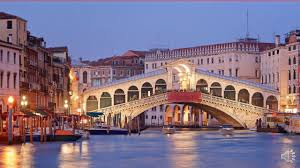Climate Change And the Economy: The Relationship
As promised, the next post would deal with the reason why it
is difficult for the entire world to come into an effective and efficient
consensus on climate change.
First of all, let’s start with the facts.
a)
Climate
is changing
b)
This
is dangerous climate change
c)
It
is caused by human activities
d)
Exploitation
of fossil fuels is the main reason
e)
About
75% of the energy mix in the world is from fossil fuels
g)
Economic development therefore, is pegged on fossil fuels.At least for now.
See why this is tricky? Not everyone wants to play along.
Conventional
wisdom has it that the only way to develop is by using fossil fuels. Slowly,
this is changing because of the advent and gradual acceptance of renewable
energy as a source of energy.
Now, the climate change we are experiencing now is primarily because of the industrialization of the developed world. Their economies are industrialized.Some of the biggest emitters of carbon dioxide are China, the United States, the European Union, India, Brazil,Canada, Russia, Indonesia, Japan, Mexico, Republic of Korea etc.
 |
| crude oil - vanguard nigeria |
Naturally, it follows that the poorest and those geographically inconvenienced (so as to speak) are the ones who suffer the most. That is the least developed, developing and island or coastal countries. That is mainly Africa, the Caribbean and everyone else in the tropics.
Of course, natural justice dictates that the biggest emitters, that is, the above named countries should bear the greatest responsibility and deal with it yes? Well, yes and no depending on whom you ask.
1.
Yes, they should. They are trying, somehow. They still need to be encouraged. Very much. Through any means possible actually.
Yes, they should. They are trying, somehow. They still need to be encouraged. Very much. Through any means possible actually.
They should;
a) Mitigate, that is, try and stop contributing to climate change. What does this mean? Use renewable energy, become energy efficient but basically, stop using crude oil, coal and natural gas. This always presents a problem for some people, they would prefer to adapt instead.
b) Adapt, that is, find ways of surviving and dealing and living with climate change. This particularly needs finance especially for the developing world.
According to the latest
global agreement (Paris Agreement 2015) these rich countries are supposed to
raise 100 billion US dollars each year up to 2020 for climate finance. That
would be the baseline for 2021 onwards. This money would go to the most
disadvantaged and help them in adaptation, mitigation, loss and damage, support
etc.
2.
No. Because if we say that it is their sole
responsibility, that they alone are to blame and they should leave us alone,
then we are making it worse.
The argument of developing countries when it comes to climate change is very simple. Developed countries caused global warming. We didn’t yet we are paying for it. They should let us grow our economies first.
They also argue that they need money to adapt, mitigate etc.
There’s just one little problem with the first argument. If we develop the fossil fuel way, we will be adding more carbon dioxide into the atmosphere and thus aggravating the problem. So what should we do?
Here’s a soft mash up.
a)
Everyone should
completely shift from non-renewable fossil fuels to renewable energy (solar,
wind, hydro, nuclear, piezoelectricity, bioenergy etc.).
-
This right here
means that we have to figure out how to reduce emissions per sector, gradually.
Let us take an example of the transport sector. It would be ideal to
i)
Move away from
motorized(vehicular) transport to non-motorized e.g. rail, bicycles, trams,
walking.
ii)
Reducing the
number of vehicles on the road e.g. sharing cars,using public transport.
iii)
Simply avoid
using cars. Send someone to the supermarket instead of everyone in the
apartment block getting in their car to go buy groceries. Also, buy groceries
for the entire month instead of going every weekend. Switch off lights when you
are not using them.
(Sidenote: Kenya is a
regional leader in renewable energy.)
b)
Knowledge and
technology transfer to the developing world to help in mitigation and
adaptation, loss, support, recovery etc.
An example here would be in;
i)
Early warning
systems (how do you know in advance that drought is coming so that we can all
prepare?)
ii)
Agriculture, the
mainstay of our economy needs rapid and in depth transformation e.g., we need
to grow drought resistant crops, fast maturing crops, high yield crops,
vertical farming, hydroponics etc.)
c)
Money, money,
money to help in adaptation and mitigation (this dear friends, is the crux of
the matter. Each year, until 2020,100 billion US dollars is to be raised to
help in the fight against climate change)
v Who’s giving the money? (rich polluting countries/
companies)
v Who’s getting the money? (poor countries)
v WHEN if ever is it getting here?Internationally, the
Green Climate Fund, United Nations Environment Program and others are
facilitators of this process.
- There are also some advocacy groups like the Pan African Climate Justice Alliance that fight for climate justice.
d
) Proper use of this money (accountability, transparency, public participation to ensure that this money goes where it is supposed to be)
) Proper use of this money (accountability, transparency, public participation to ensure that this money goes where it is supposed to be)
e
) Education and raising awareness about climate change (This means educating the tots from a young age) Mtoto umleavyo ndivyo akuavyo.
) Education and raising awareness about climate change (This means educating the tots from a young age) Mtoto umleavyo ndivyo akuavyo.
f
) Stop encroaching on forest land and stop cutting down trees to build flats!
) Stop encroaching on forest land and stop cutting down trees to build flats!
g
) Every five years, countries will meet to review each other’s Intended Nationally Determined Contributions. That long number means that countries at roughly the same level of GHG emissions (peers) will meet under the auspices of The UNFCCC to check whether you (country A) did what you said you would do in reducing greenhouse gas emissions (review) and whether you are aiming to do more. For example, China and The USA review each other’s INDC’s
) Every five years, countries will meet to review each other’s Intended Nationally Determined Contributions. That long number means that countries at roughly the same level of GHG emissions (peers) will meet under the auspices of The UNFCCC to check whether you (country A) did what you said you would do in reducing greenhouse gas emissions (review) and whether you are aiming to do more. For example, China and The USA review each other’s INDC’s
What I am trying to tell you here in these many words
is
TRANSITION TO A LOW
CARBON ECONOMY IS A MUST
Side
note : Did you know that climate change, an actual science, has become a
business? Some rich countries and companies (fossil fuel companies mostly) pay
some poor countries to plant trees and realize projects that absorb the carbon
dioxide that these rich entities produce. Therefore, they are buying their right
to pollute. They don’t want to change, they are paying others to absorb what
they emit. In fact, there is an entire structure built around it.
Climate however respects no one and continues to change.
But I will never lose faith in the human race. You know why, because we are young people. And this planet is ours. It is us who will have to contend with the effects of climate change. Us, our children and grandchildren.
Imagine this scenario : You start a profitable manufacturing business. This emits CO2 one way or the other. People on the other end of the planet have their homes and livelihoods destroyed by flash floods, typhoons or long unexpected droughts. You don’t care because it isn’t your life.
Well, good. Just wait and see. I suppose you will be in your bunker deep underground when the rest of us roast here eh? Okay, you have a lot of money. Then you die. How has that benefited you? Will your money buy you eternal life in a safe moderate climate? Will you pack it off in bags and speed off into the afterlife?
No!
Let me shame you the philosophical way. History will judge you! You will be found on the wrong side of history!
Phew!
End of that rant.
Now I am not down playing the importance of the economy and development. So the question is, how do we make tradeoffs between the economic development and climate change?
In
appealing to businesses to change from nonrenewable (fossil fuels) to renewables, we must offer alternatives
that make business sense. At the same time, we must put the lives of billions
of people on this planet into consideration.
This will be tackled in subsequent posts.
Now, next time, I will tell you all about international climate change agreements and the conferences including COP 22 happening right now in Marrakech, Morocco.
As
our lecturer used to say, class, I am teaching you to be responsible members of
society, not just money makers. You are the people who will change the world.
So
now, what have you learnt?
Discuss, (20 marks).





Comments
Post a Comment